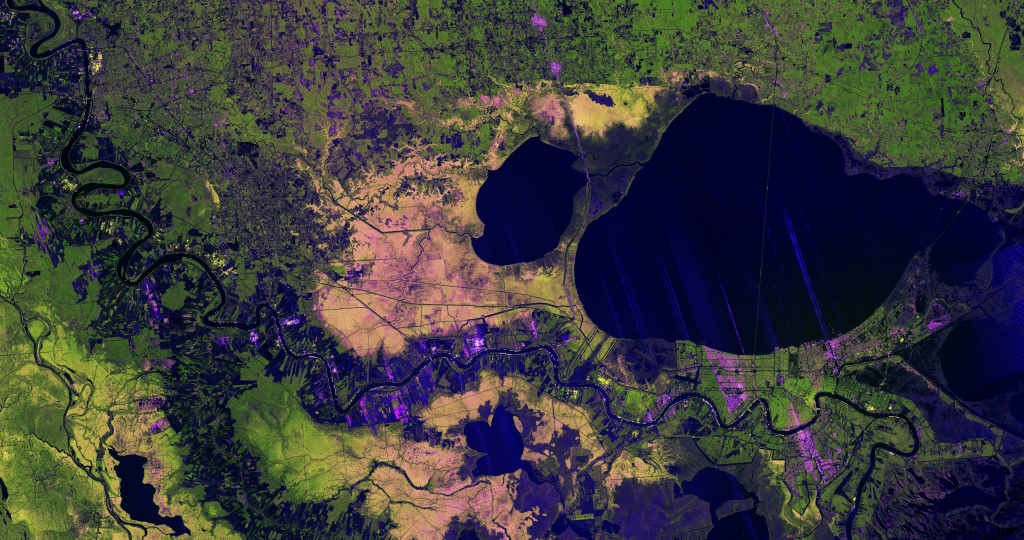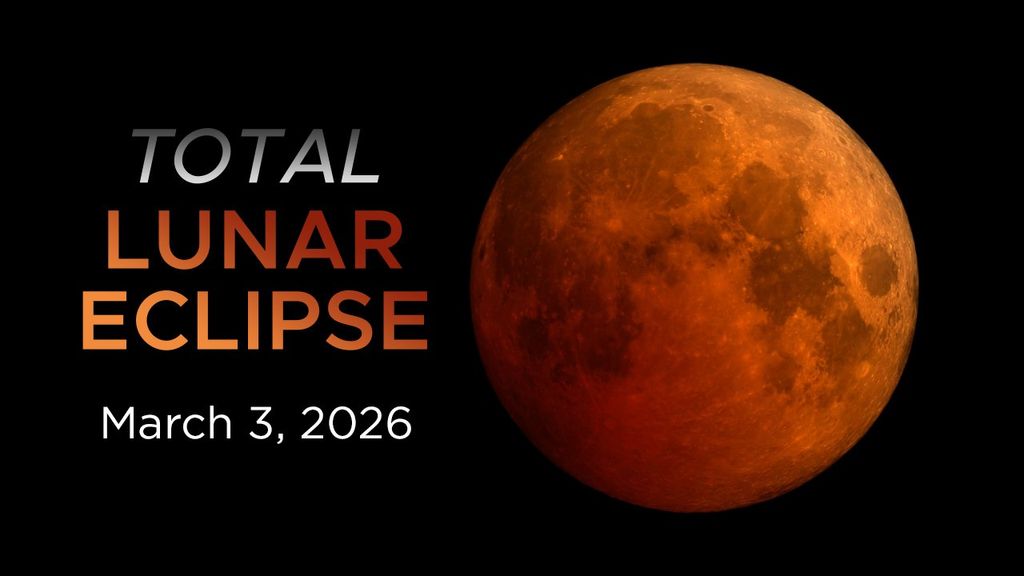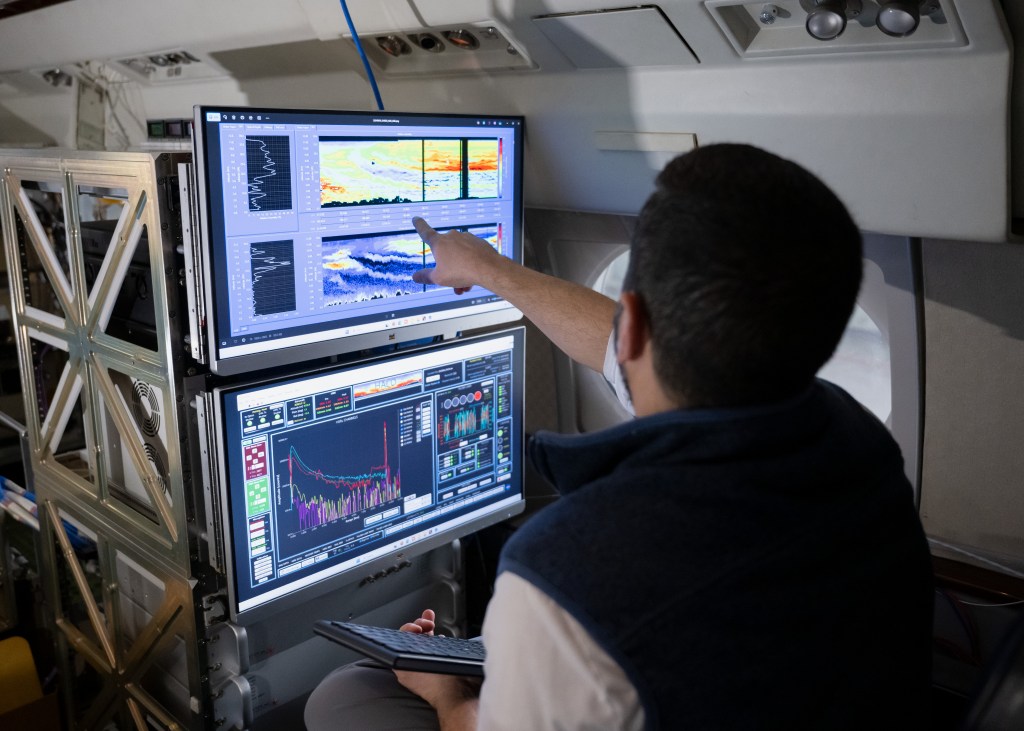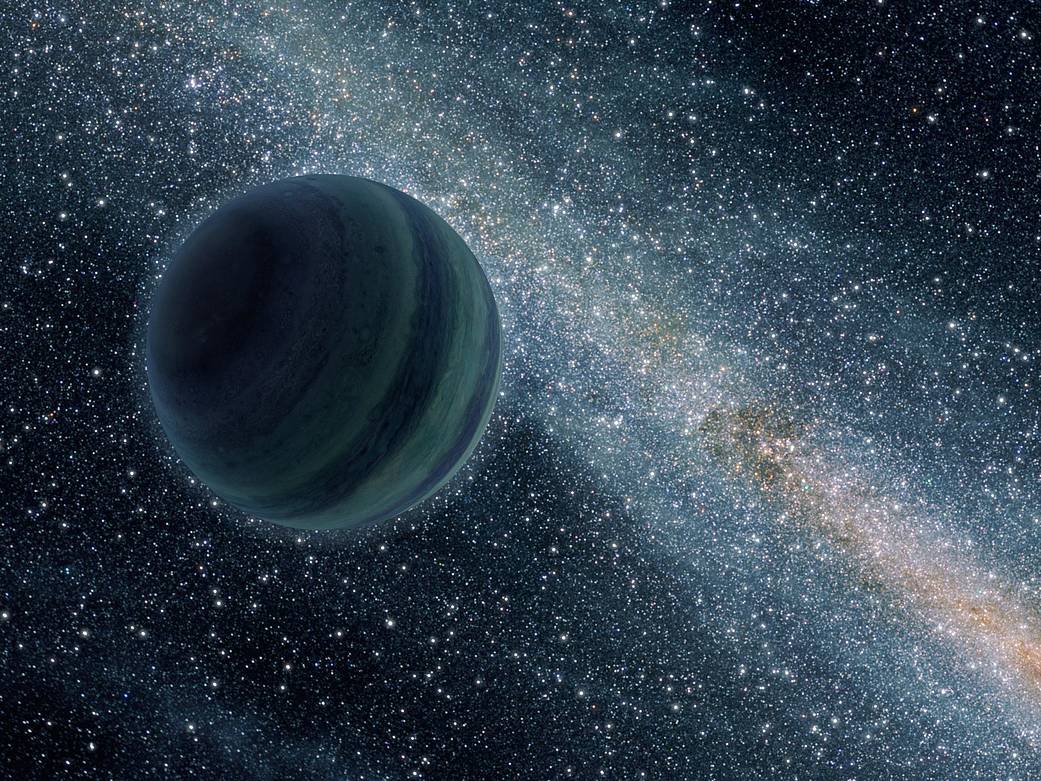This artist’s conception illustrates a Jupiter-like planet alone in the dark of space, floating freely without a parent star.
Exoplanet hunters have found thousands of planets, most orbiting close to their host stars, but relatively few alien worlds have been detected that float freely through the galaxy as so-called rogue planets, not bound to any star. Many astronomers believe that these planets are more common than we know, but that our planet-finding techniques haven’t been up to the task of locating them.
A planet survey, called the Microlensing Observations in Astrophysics (MOA), scanned the central bulge of our Milky Way galaxy from 2006 to 2007. It used a 5.9-foot (1.8-meter) telescope at Mount John University Observatory in New Zealand, and a technique called gravitational microlensing. In this method, a planet-sized body is identified indirectly as it just happens to pass in front of a more distant star, causing the star to brighten. The effect is like a cosmic funhouse mirror, or magnifying lens – light from the background star is warped and amplified, becoming brighter.
Using the latest technology, NASA’s Nancy Grace Roman Space Telescope will conduct a survey to discover many more exoplanets using powerful techniques available to a wide-field telescope. Image Credit: NASA/JPL-Caltech

























